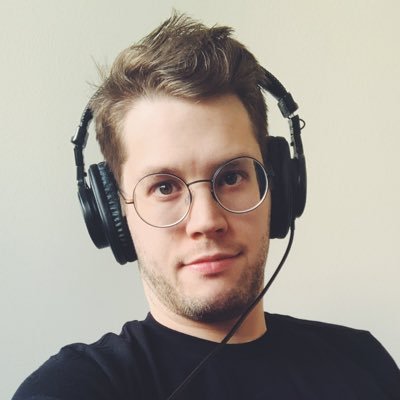← Explore
“Artists who lose the lottery for grants, residencies, and corporate patronage work second and third jobs to subsidize their much less lucrative art. It often feels like the only people who can afford to make art at all are the people who don’t need money at all.”

Matthew Braga is a freelance journalist based in Toronto. A former senior technology reporter for CBC News and editor at Motherboard, he covers technology, science, and culture.
When will I feel like I’ve finally made it? It’s something I think about a lot as a writer trying to make a living off my work. There are the critical markers of success, like writing stories that have an impact, are widely read, or appear in prestigious publications. But I don’t think I’ll ever feel like I’ve truly made it until I’m no longer worrying about precarity—until I feel like I’m fairly, properly, and promptly compensated for my work.
I know I’m not alone! Musicians get paid mere fractions of a cent for every stream of their songs and have to relentlessly tour and sell merch to get by. Disney is eating the film world, at the expense of independent and experimental film. The diverse, affordable, working-class neighbourhoods where artists once lived and worked—painting, sculpting, constructing, showing—are now luxury condos and high-end boutiques. Artists who lose the lottery for grants, residencies, and corporate patronage work second and third jobs to subsidize their much less lucrative art. It often feels like the only people who can afford to make art at all are the people who don’t need money at all.
Add a global pandemic to the mix, and things aren’t looking great right now for people who want to make a living making art. What will it take to help artists prosper? Is there a way forward outside capitalism? Can we—or should we—still rely on government funding, or corporate support? No one knows! Not yet. But as terrifying as that may be, there’s also excitement in the unknown, because it means we have an opportunity to conjure new, experimental, hopefully better futures into existence to replace what exists now.
“With the Digital Economies Reader we’ll be publishing short interviews with the artists involved, more information about their projects, links to stories and resources you might find interesting, and some of my own thoughts on trying to make a living as a writer.”
In January, I joined a group of artists who descended upon Ottawa to imagine what some of these futures might look like—futures more equitable and sustainable, where artmaking is more broadly valued, and where it’s possible to make a living making art. Some proposed an artists’ union that could push for better working conditions and support by leveraging the collective strength of artists across disciplines, a collective too large to ignore. Others advocated for ways to make resources, funding, knowledge, and skills more widely available and accessible—especially among artists with children, marginalized artists, and artists of colour, who often lack the same privileges, opportunities, and benefits available to their white, cisgender, heterosexual colleagues. Clearly, the business models and financial supports that have funded artmaking for decades aren’t working, or aren’t working equally, if they ever worked at all, and the artists at this workshop were eager to come up with something new—such that anyone who wants to be an artist, who wants to make art, can feel welcome, supported, and secure. The meeting, organized by the Ottawa collective Artengine, marked the start of a year-long exploration: the Digital Economies Lab (DEL).
Over the coming months, the DEL’s artists will present some of their ideas to the wider artistic community for feedback, insight and support. With the Digital Economies Reader we’ll be publishing short interviews with the artists involved, more information about their projects, links to stories and resources you might find interesting, and some of my own thoughts on trying to make a living as a writer. Running themes will include: how automation, AI, and tech-assisted tools are changing the way artists work; how universal basic income and other forms of government support might alleviate the feeling of precarity; the impact of corporate funding on who gets to make art, and the kinds of art that gets made; and why art-making isn’t valued the same as other types of work. I hope you’ll come away with a greater appreciation of the uncertainty and precarity facing today’s working artists—and optimism that things can change.